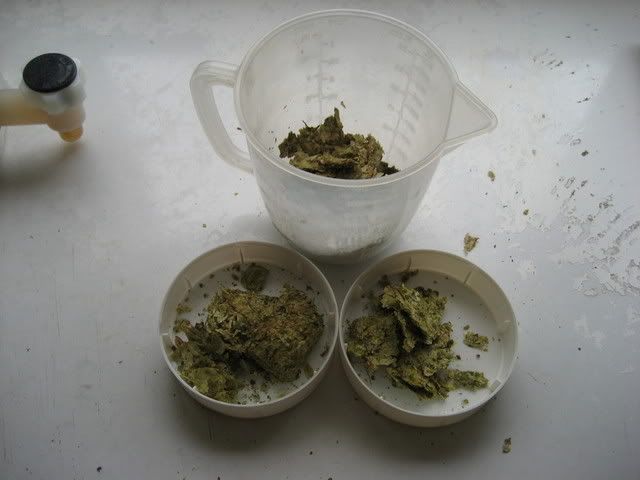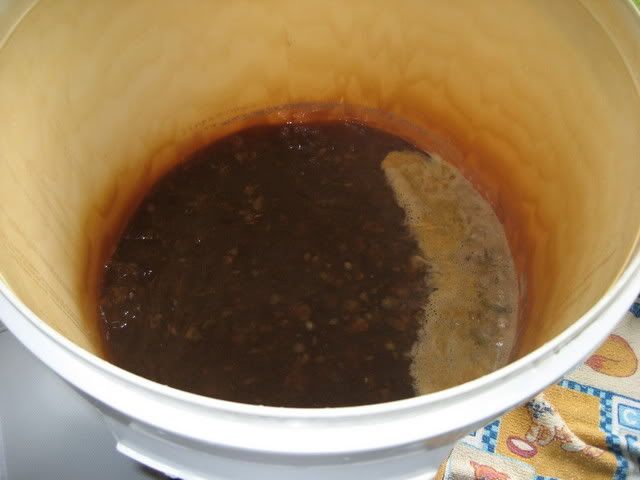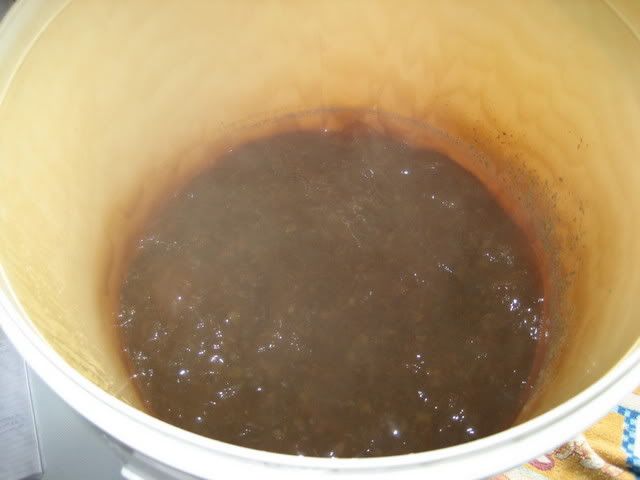I boil all my all grain brews for 90 minutes. The boil is
one of the easiest stages of the process; it is also one of the most important. It is preferable to get a vigorous,
rolling boil going. This ensures that the bitterness is extracted from the hops and that the proteins in the brew
settle out in a gummy, light brown substance. This ensures a sound brew will result which has no off flavours.
It is during the boil that the hops and Irish moss are added at
various stages.

The jug contains the bittering hops, the container on the left
contains the late hops and the container on the right contains the soak hops.

This photo was taken after the bittering hops in the jug were added;
they were added as soon as the brew came to the boil.

The above photo shows the boil is now vigorous, the hops can be
seen swirling around in the brew. The recipe for this brew does not include sugar, had it done so I would have added
the sugar to the boil after 45 minutes of the boil.
After 75 minutes of the boil and with 15 minutes remaining, the hops in the container on the
left were added to the boil, along with 1/2 tsp of Irish Moss. Adding hops at this stage restores a hop aroma which
is driven off from the bittering hops due to the length of time they are boiled. The Irish Moss helps the hot break
and are classed as copper finings, they help the proteins in the wort stick together and fall to the bottom of the brew where
they are filtered out by the hops when running off.
When the 90 minute boil time is over, I switch the boiler off and add the hops from the container
on the right; this gives the brew a hoppy aroma and is similar to dry hopping a brew. I then leave the boiler standing
for 30 minutes to allow the hops to settle in the bottom of the boiler before cooling and running off into a fermenting bucket.
Please go to the next page, cooling.



